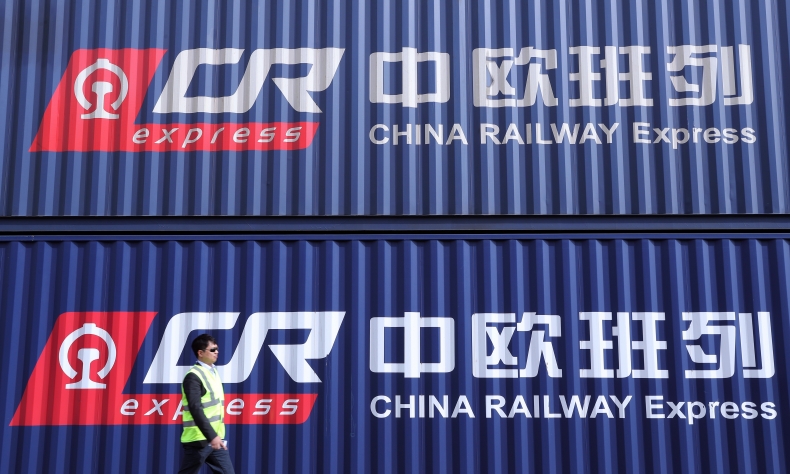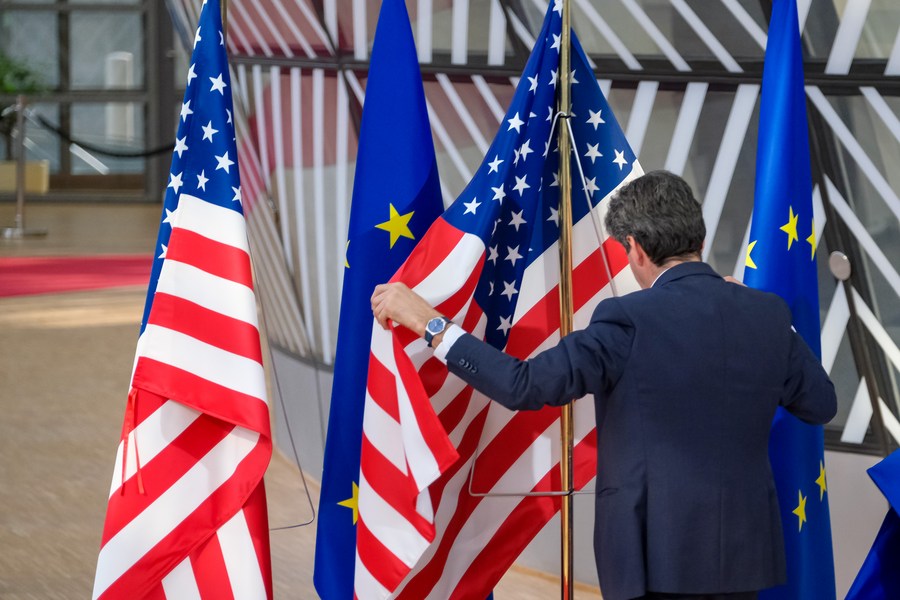Europe Needs to Make the Right Choices in Its Relationship with China

European countries must therefore push to conduct their foreign policies with China independently, free of third-party interference, and with a view to the continent’s long-term interests.
President of France Emmanuel Macron, accompanied by European Commission President Ursula von der Leyen, is visiting China in the first week of April. It comes amidst a speech by the latter that sought to frame Europe’s relationship with China on the need to “reduce dependencies” and opposing the concept of “decoupling,” striking a mutedly optimistic tone about current relations with the country. Despite this, the two leaders’ Beijing visit demonstrates their interest in continuing engagement with the world’s second largest economy amid growing geopolitical tensions and pressure from the United States for them to reduce ties as Europe is pushed to “take a side.”
It is time for the countries of Europe to make the right decision regarding their relations with China and to opt for stability, balance, reason, and pragmatism above ideology, confrontation, and what Beijing denounces as “bloc confrontation.” The world is changing, and not for the better, with the United States seeking to reshape geopolitics into a framework of competition between states, ripping up the existing rules and globalization trends in the bid to shore up its power and maintain what it sees as its rightful dominance.
In doing so, the U.S. has made “containment” of China its number-one priority, utilizing economic, technological, and military means. Washington subsequently expects its allies, especially those in Europe, to get on board with these policies and support them and does not care about what economic costs or losses these countries may suffer by doing so. Similar to the original Cold War, the United States perceives Europe as part of its own “bloc” or “domain,” and it is therefore expected to follow suit and acknowledge the U.S. as its primary protector or overseer.

Although Emmanuel Macron of France has long spoken of the need for “European strategic autonomy,” which emphasizes Europe as an independent, unified, and autonomous player in the world, the United States has nonetheless been able to continually exert influence over Europe through its divide and rule strategy via various channels. The crisis in Ukraine has subsequently allowed the United States to increase its strategic hold over the continent, enabling itself as a security provider and a supplier of arms, forcing decoupling in the energy industry in ways which are economically advantageous to the U.S.
This has placed increasing pressure on EU-China relations. However, in recent months, a number of European leaders have made the point that continued engagement with China is important and that Beijing, as a trading partner and necessary global cooperative, is too significant to ignore. Thus, in November, German Chancellor Olaf Scholz visited China, while the Prime Minister of Spain also visited the country and attended the Boao Forum for Asia in Hainan last week. There remains an underlying recognition that it is in Europe’s collective interests to maintain a positive relationship with China overall.
However, more must be done. Symbolism and rhetoric must be met with actions, and although Ursula von der Leyen has spoken of opposition to so-called decoupling, Europe must show that it is willing and able to resist unilateral pressure from the United States. If the U.S. is continually able to “pick off” areas of interest by unilaterally pushing certain European countries to follow its will, then talk of European unity or autonomy is meaningless.
European countries must therefore push to conduct their foreign policies with China independently, free of third-party interference, and with a view to the continent’s long-term interests. In this regard, more effort must be placed on avoiding a “new cold war” and likewise, reaffirming the importance of the massive EU-China bilateral relationship as opposed to trying to erode it. China, after all, is the world’s largest market for European companies. This visit therefore has monumental significance regarding the precedent that it will establish going forwards, and as such, it must demonstrate enthusiasm for deals such as the Comprehensive Agreement on Investment (CAI) and mutual Chinese and European investment in their respective countries.
 Facebook
Facebook
 Twitter
Twitter
 Linkedin
Linkedin
 Google +
Google +







